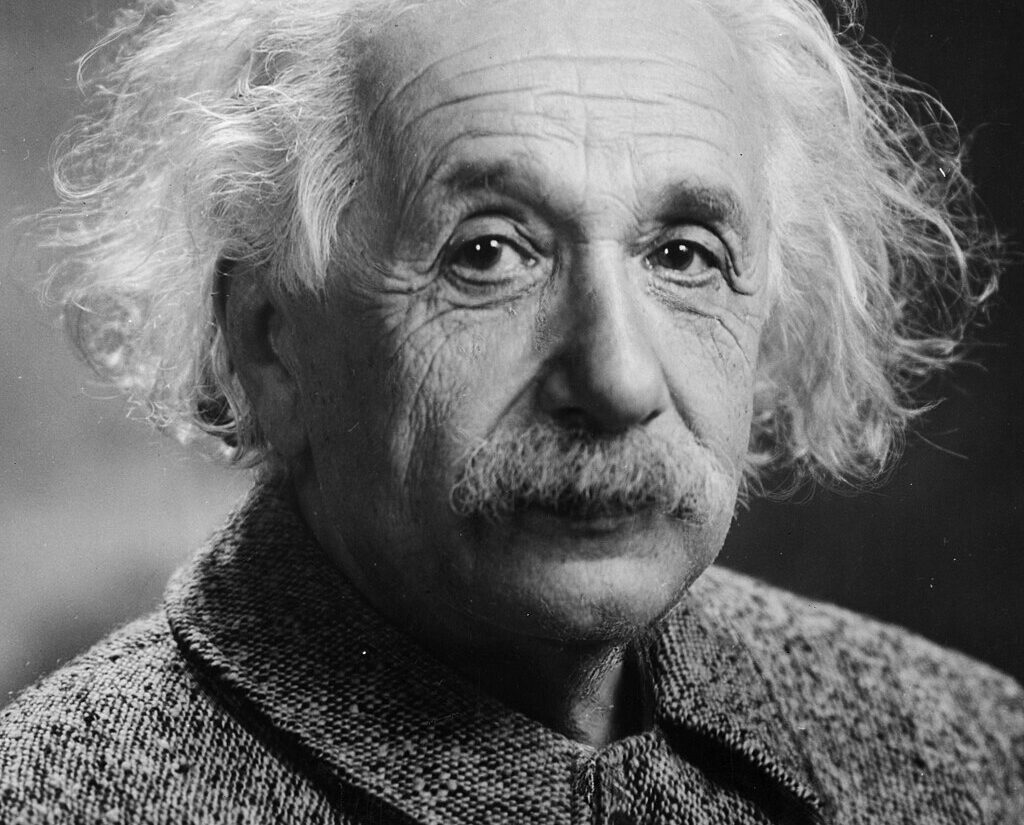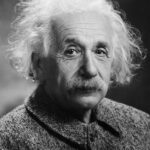 Photograph by Orren Jack Turner, Princeton, N.J., Public domain
Photograph by Orren Jack Turner, Princeton, N.J., Public domainWe often hear about straight-A students and overachievers, but history tells a different story: some of the brightest minds of all time were seen as failures by their schools and teachers. They struggled with formal education, clashed with authority, or simply couldn’t thrive in rigid systems. Some were labelled slow, some were bored out of their minds, and others were cast out by traditional academics. And yet, they went on to reshape science, art, and human understanding in ways their examiners could never have imagined. Here are some of the most fascinating examples of people who were written off in the classroom but changed the world outside of it.
Albert Einstein
It’s a persistent myth that Albert Einstein failed maths as a student—he didn’t. But it’s true that he struggled within the strict, authoritarian style of schooling in Germany at the time. He loathed rote memorisation and clashed with teachers who found his questioning attitude disruptive. At 15, he dropped out of school altogether and later failed his first attempt to get into the Swiss Federal Polytechnic, only passing the maths and physics sections. Even after eventually enrolling, he had trouble securing a teaching post after graduation.
Despite that rocky start, Einstein went on to revolutionise physics. His theory of relativity fundamentally changed how we understand time, gravity, and space, and his name became synonymous with genius. It’s a reminder that being unconventional doesn’t mean being unintelligent—it can mean thinking in ways that no one else dares to.
Thomas Edison
Thomas Edison’s teachers considered him a difficult student, and one even described him as “addled.” He lasted only a few months in formal schooling before his mother pulled him out and began teaching him at home. A hearing impairment, which worsened as he got older, made traditional learning even more of a struggle. But what Edison lacked in classroom credentials, he made up for in relentless curiosity and hands-on experimentation.
He held over 1,000 patents and was behind the invention and commercialisation of the phonograph, electric light bulb, and motion picture camera. Edison was more of a practical tinkerer than a theorist, and he approached invention with sheer determination—famously saying he’d found “10,000 ways that won’t work.”
Leonardo da Vinci
Leonardo da Vinci didn’t benefit from the elite classical education of his time. Born out of wedlock in a small town, he was excluded from many formal academic paths. He never became fluent in Latin or Greek, which were considered essential for scholarly work, and he had very little structured schooling. Instead, he taught himself through observation, trial and error, and sketching everything he saw.
His notebooks are a marvel: packed with anatomical studies, architectural plans, inventions, and philosophical musings. Though he’s best remembered for art like the Mona Lisa, he also explored flight, hydraulics, and optics. Leonardo’s genius lay in his boundless curiosity—something no academic transcript could have captured.
Michael Faraday
Michael Faraday was born into poverty and had minimal formal education. He started working at 13 as an apprentice bookbinder, and it was through reading the scientific books he bound that he began to educate himself. He attended public lectures at the Royal Institution and eventually impressed chemist Humphry Davy enough to be taken on as a laboratory assistant.
Faraday went on to make groundbreaking discoveries in electromagnetism and electrochemistry. He invented the electric motor, pioneered the concept of electromagnetic fields, and contributed massively to the field of electrolysis. He was never formally trained in higher mathematics, which made his achievements all the more astonishing. Albert Einstein later kept a portrait of Faraday in his office as a mark of respect.
Agatha Christie
Agatha Christie wasn’t a strong student and had very little traditional schooling. She was homeschooled and then sent to finishing school in Paris, where her academic performance was reportedly average at best. She was a daydreamer with a love of storytelling but little interest in the classroom.
Yet, she became one of the most prolific and best-selling authors of all time, known for her intricate murder mysteries and memorable characters like Hercule Poirot and Miss Marple. Her ability to plot tightly woven narratives and mislead even the most careful reader made her a literary icon, proving that imagination can thrive outside academic walls.
Charles Darwin
Charles Darwin’s academic path was all over the place. He began studying medicine at the University of Edinburgh, but was squeamish about surgery and uninterested in lectures. His father then sent him to Cambridge to study theology, thinking it would lead to a respectable career in the Church. But Darwin’s real passion was nature. He spent more time collecting beetles than attending lectures.
It was the invitation to join the HMS Beagle as a naturalist that changed everything. Over the five-year voyage, Darwin made the observations that would form the basis of his theory of evolution by natural selection—a theory that rocked the scientific and religious worlds alike. For a man once deemed aimless and academically uninspired, that’s quite the turnaround.
Winston Churchill
Churchill’s school days were far from impressive. He struggled with many subjects, particularly languages and maths, and was often near the bottom of his class. He was known for his rebellious streak and lack of interest in formal learning. It wasn’t until he attended the Royal Military Academy at Sandhurst that he began to show promise, and even then, he scraped by on his third attempt.
Despite his academic record, Churchill became one of Britain’s most important wartime leaders, delivering rousing speeches that rallied a nation during its darkest hours. His command of language, history, and political nuance came not from school but from voracious reading and relentless self-education.
Benjamin Franklin
Benjamin Franklin’s formal schooling ended when he was just ten years old, due to his family’s financial struggles. He was largely self-taught, reading everything he could get his hands on. He became a printer’s apprentice and used that position to publish his own writings and ideas.
Franklin’s contributions spanned science, politics, and literature. He helped found the United States, discovered principles of electricity, and invented everything from bifocal glasses to the lightning rod. He also founded libraries and universities, advocating for accessible education despite never having had much himself.
Rabindranath Tagore
Tagore, the first non-European to win the Nobel Prize in Literature, disliked formal schooling so much that he dropped out. He found traditional education stifling and preferred to learn by observing nature and exploring literature on his own terms. His family supported this unconventional approach, and he later founded his own school, Santiniketan, which promoted creativity and holistic learning.
He went on to write poetry, plays, essays, and music, leaving a deep cultural legacy in India and beyond. Tagore’s rejection of rigid systems and belief in learning through freedom challenged the very foundation of academic structure.
The takeaway
Academic success doesn’t always predict greatness. While formal education has its place, it’s not the only, or even the most reliable, path to deep knowledge, creativity, or lasting impact. Many historical geniuses followed winding roads, struggled with traditional learning, or flat-out failed in school. What set them apart wasn’t their exam results—it was their curiosity, persistence, and their refusal to let conventional systems define their potential. Sometimes the classroom just isn’t built to hold the biggest minds.



